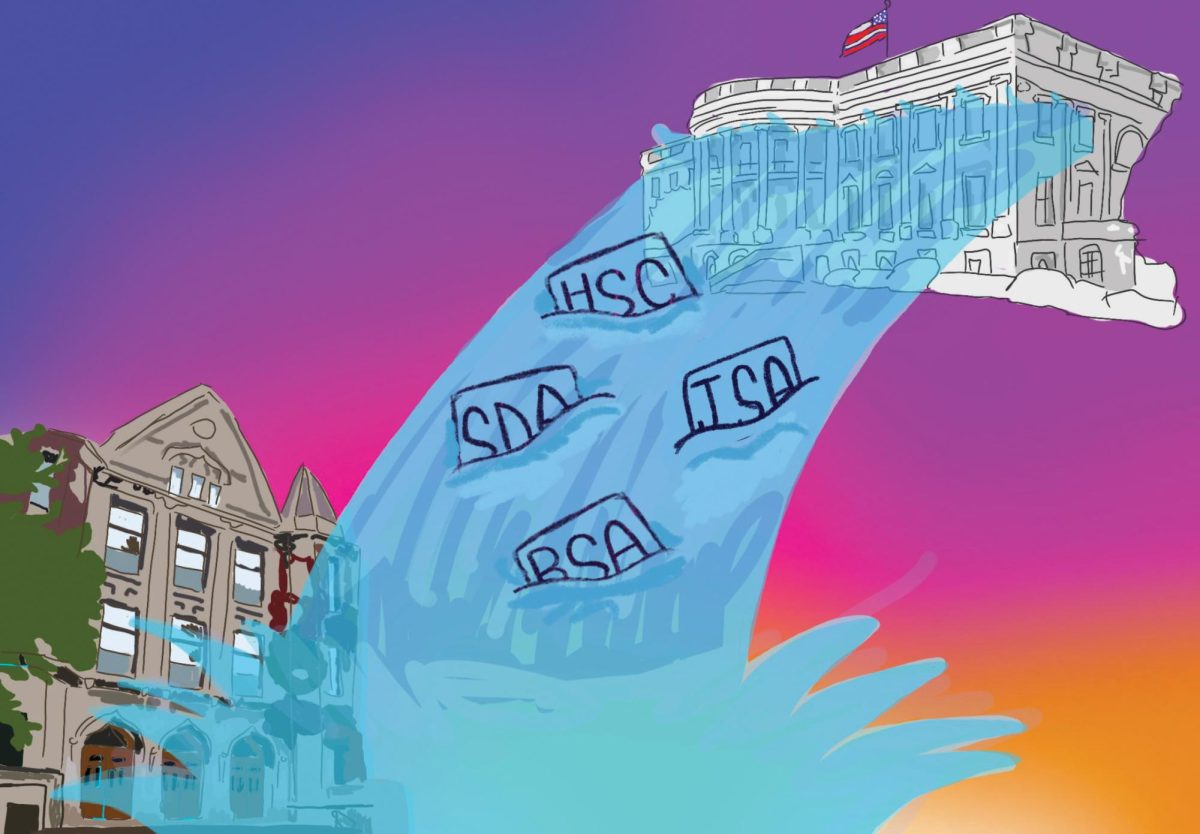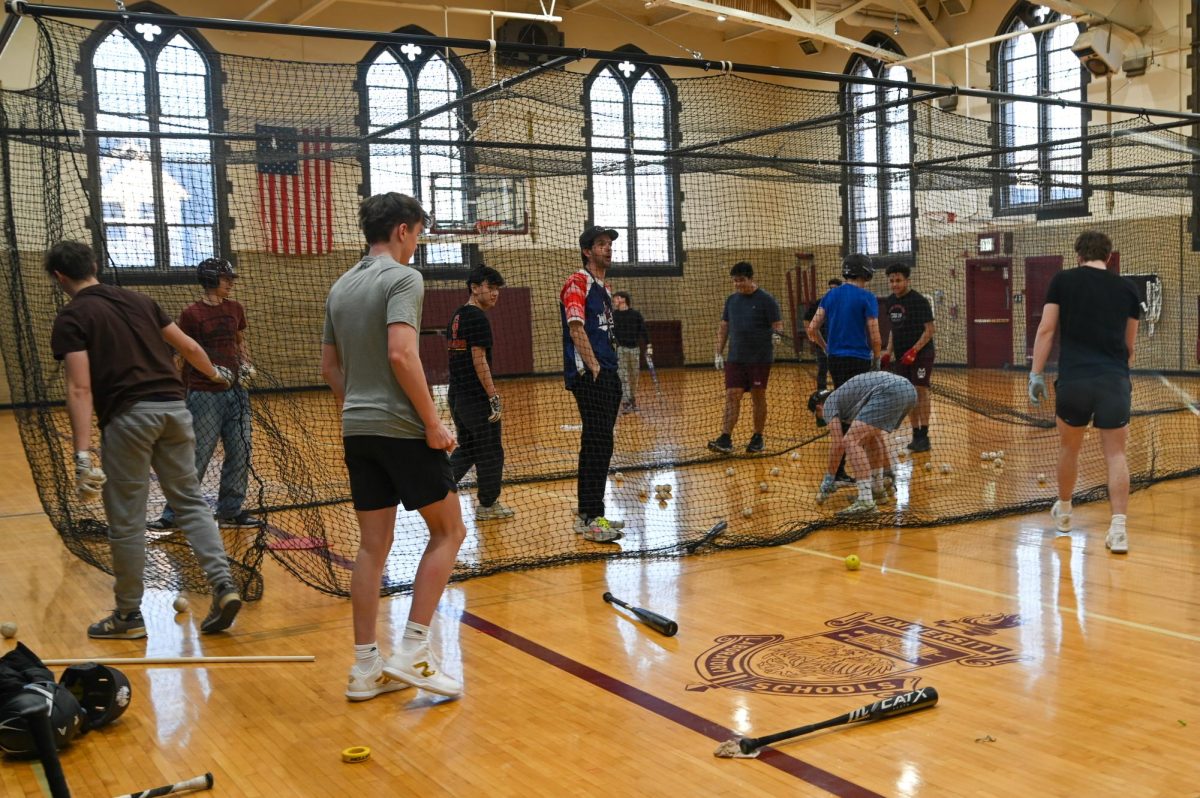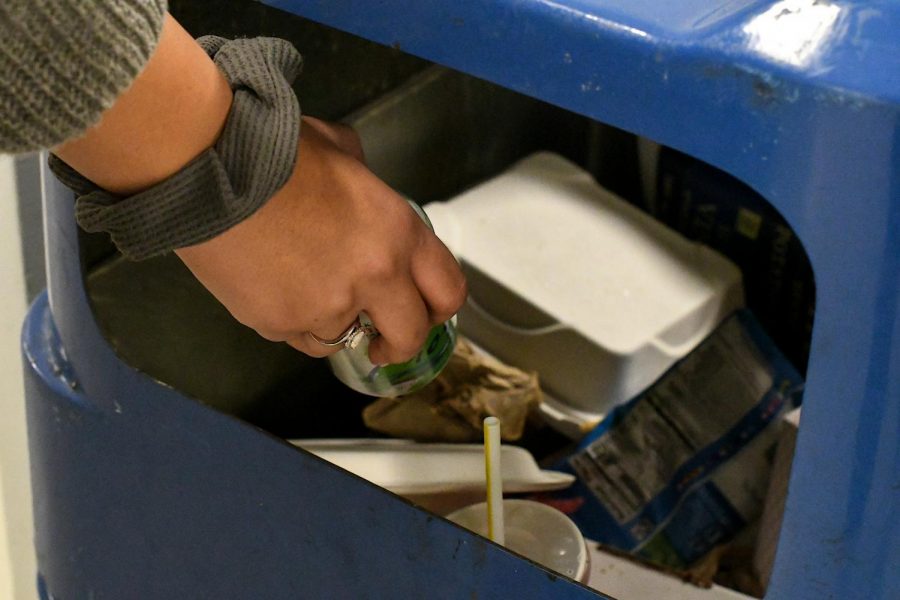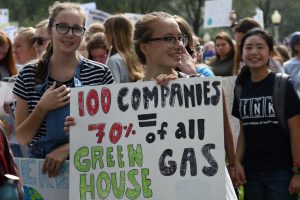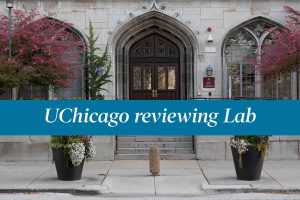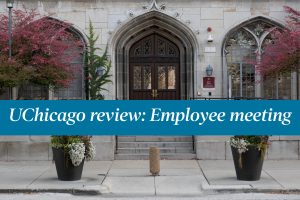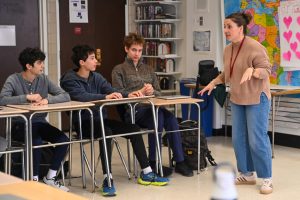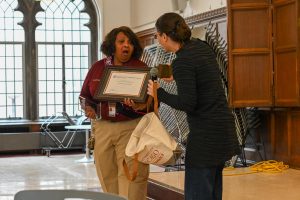CLIMATE CRISIS: How teachers plan to address the generation’s hottest issue
Maria Shaughnessy
After discussing climate education for various professional development events, lab teachers have begun plans to incorporate climate change into curricula across subjects. Reducing the school’s carbon footprint is also a priority, and being conscious of recycling cans and avoiding lunchroom waste is a place to start.
December 5, 2019
On average, more than 24 million people have been displaced each year from 2008 to 2018 due to weather disasters, according the Global Internal Displacement Database. Through the collective efforts of teachers, staff and students, Lab has begun to combat the issue by introducing topics of climate change into the curriculum.
Middle school science teacher Tony Del Campo and high school English teacher Mark Krewatch conducted a survey to find out what faculty members were already doing and how they wanted to incorporate climate change into the curriculum. Mr. Krewatch said responses from roughly 40 faculty and staff expressed interest in getting involved.
“What we noticed is that teachers are very interested in this,” Mr. Del Campo said, summarizing the results of the survey. “One of the big things is that they want to work with someone else, so we are trying to find out mechanisms to get people together.”
Faculty discussed climate change in workshops during professional development day Nov. 8. Laboratory Schools Director Charlie Abelmann said the discussion will continue in the next professional day April 17 with a talk from economist Michael Greenstone.
According to Dr. Abelmann, climate change discussion fits into Lab’s objectives and recently published strategic framework as a possible shared theme that could inspire and enhance interdisciplinary teaching practices. It follows the guidelines of progressive education by preparing students to create a more sustainable world and encouraging active participation in the community.
Mr. Del Campo said he advocates for an environmental statement, alongside the diversity and mission statements, and the addition of an administrator that considers how Lab’s decisions can impact students in the future.
More than 80% of parents and teachers nationwide support climate change education in schools, according to a recent NPR/Ipsos poll published in April. However, a disparity exists between support and action. The same poll found that the majority of parents and teachers do not discuss the issue. One of the most common reasons teachers cited was that climate change is outside of their subject.
“We have incredible intellectual, if not economic, power. Seems like we should be the people in the forefront,” Mr. Krewatch said.
Lab has the opportunity to lead efforts in climate change education, especially in subjects outside of science.
Although not all courses can teach the science of global warming, Mr. Krewatch said teachers can “use climate as a vehicle for the same core skills.”
In Literary Theory, students read texts while considering various perspectives such as feminist, Marxist and post-modern. To introduce climate change education, Mr. Krewatch added the environmental lens to the course.
Another possibility is climate-themed word problems in math courses.
In 2018, the U.S. government released the Fourth National Climate Assessment. Each of Lab’s 7th grade science classes created a six-part podcast discussing the assessment and each of its five chapters. Titled “Understanding Climate Change,” it was published on the Lab school website, and students sent their work to politicians such as U.S. Senator Dick Durbin of Illinois.
Demonstrably, teachers can introduce climate change into classrooms without compromising the current curriculum.
Students have also started taking action. Junior Rithik Puri is organizing a public panel through the Social Justice Committee for teachers to discuss climate change. He said one of the focuses will be the policies of 2020 presidential election candidates.
Last year, the All-School Council began the conversation by setting climate as the theme of the summer read for faculty and staff.
“How can we be teaching anything other than climate education?” Mr. Krewatch said. “All the values that we talk about might mean nothing in 20 years.”




















